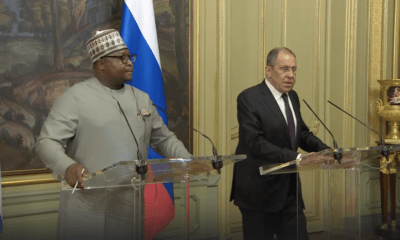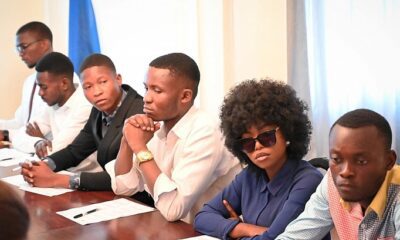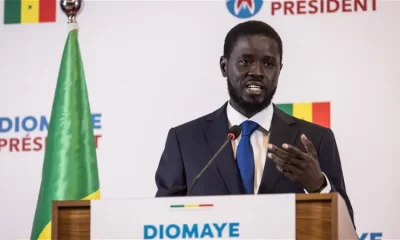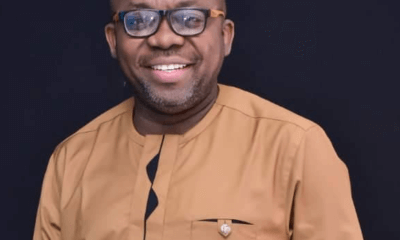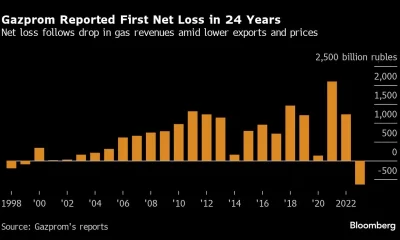National Issues
Humanists, (Ir)religious Demographics and 2023 Census in Nigeria -By Leo Igwe
They are counted and included in the over 50 percent Muslims and over 40 percent Christians that are often quoted to be in the country. Humanists are concerned because it is only when religious questions are included in the census that there would be reliable data on religious and irreligious patterns and changes in Nigeria.
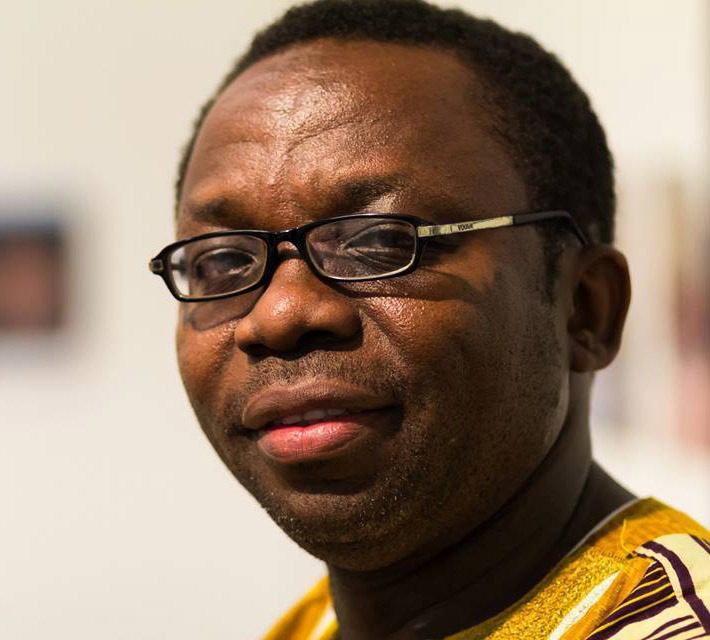
Humanists express concerns over the exclusion of questions about religious or nonreligious affiliations in the 2023 census. For a country where most people are often described as deeply religious, and religion is a device for discrimination, persecution, and murder, this omission is a grave error. It is a serious shortcoming in the forthcoming head count. Responding to a viral message that suggested that the next population and housing census would feature questions on religion, the National Population Commission (NPC) noted that there would be no questions on religion. The NPC said: “it was agreed that religion and ethnicity should not be included in the Census questionnaire to insulate the process and outcomes from unnecessary controversies”. Is that not a lame excuse? This explanation is a pretext to continue to misrepresent religious and irreligious demographics in the country. The commission did not state who agreed to exclude the religion question and why. Look, one of the main goals of a census is to understand demographic patterns and shifts. Census is a mechanism to collect data on aspects of a population. People rely on the census to understand details of the population including the age, sex, religion, ethnicity or race. And if questions on religion are excluded, what then is the essence of this program? What information would the head count provide? What is volatile or controversial about providing information about religious belief and nonbelief in Nigeria?
Humanists are nonreligious and irreligious individuals and include atheists, agnostics, freethinkers, and other nontheistic and religion-free persons. According to the information out there, the nonreligious constitute less than 2 percent of the population. But many humanists are of the notion that Nigeria’s religious demographics are bogus and bloated. That the irreligious population is not adequately captured due to entrenched religious politics in the country. The nonreligious constituency is growing especially with the advent of the internet and social media that have liberated many from the grip of religious control and coercion. Many religion and god-free people who live in Muslim or Christian-dominated areas are mistakenly regarded as Muslims or Christians. They are counted and included in the over 50 percent Muslims and over 40 percent Christians that are often quoted to be in the country. Humanists are concerned because it is only when religious questions are included in the census that there would be reliable data on religious and irreligious patterns and changes in Nigeria.
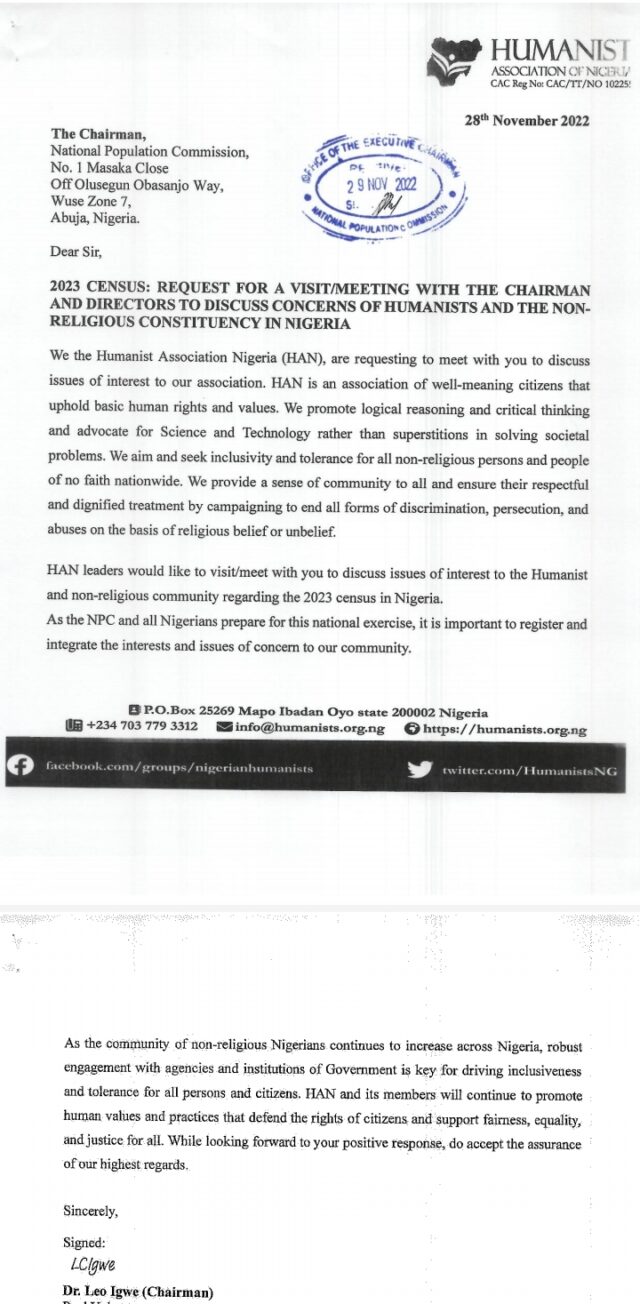
To register these concerns, the Humanist Association of Nigeria requested to meet with the National Population Commission. But the request, sent to the commission last year, has, so far, been ignored. The proposal has not been granted apparently because the commission does not reckon with the non religious constituency in the country. The NPC should understand that Nigeria has a diverse population that include believers and non believers. It should be open to understanding and appreciating the needs and interests of all Nigerians including the non religious population. The NPC has a duty to capture the changes in (ir)religious patterns and professions in the country. The irreligious population should be counted, and information about them should be contained in the 2023 census.
Leo Igwe is a Board member of the Humanist Association of Nigeria and Humanists International.

